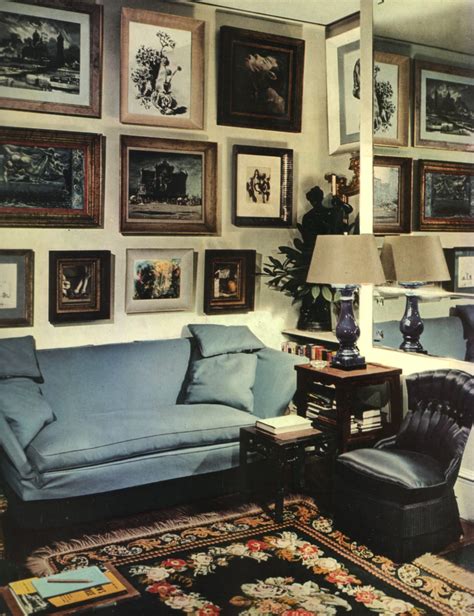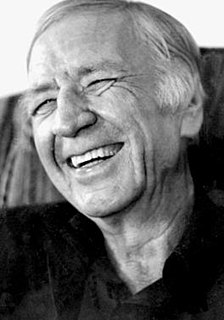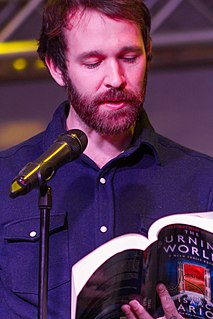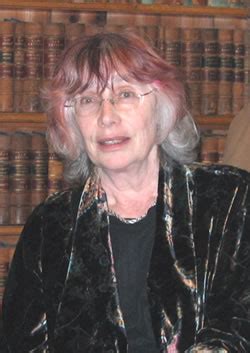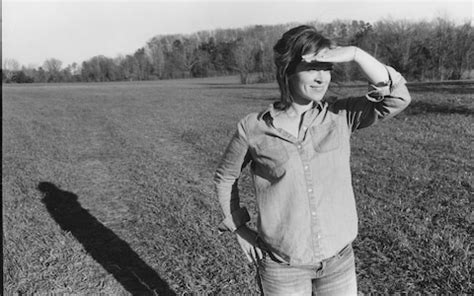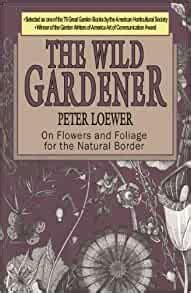Top 145 Punctuation Quotes & Sayings - Page 3
Explore popular Punctuation quotes.
Last updated on November 27, 2024.
[Mary Wortley Montagu] wrote more letters, with fewer punctuation marks, than any Englishwoman of her day; and her nephew, the fourth Baron Rokeby, nearly blinded himself in deciphering the two volumes of undated correspondence which were printed in 1810. Two more followed in 1813, after which the gallant Baron either died at his post or was smitten with despair; for sixty-eight cases of letters lay undisturbed ... 'Les morts n'écrivent point,' said Madame de Maintenon hopefully; but of what benefit is this inactivity, when we still continue to receive their letters?
Color is a major element in scale. A small room can have a larger look by the use of closely related values, hues, and intensity. A large room can be made to look smaller by marked contrasts of color and value, hue, and intensity. Value is one of the most important elements. Whether light or dark, little value contrast makes for unity, and sharper contrast makes for stronger punctuation.
When I'm writing a play I hear it like music. I use the same indications that a composer does for duration. There's a difference, I tell my students, between a semi-colon and a period. A difference in duration. And we have all these wonderful things, we use commas and underlining and all the wonderful punctuation things we can use in the same way a composer uses them in music. And we can indicate, as specifically as a composer, the way we want our piece to sound.
In lots of books I read, the writer seems to go haywire every time he reaches a high point. He’ll start leaving out punctuation and running his words together and babble about stars flashing and sinking into a deep dreamless sea. And you can’t figure out whether the hero’s laying his girl or a cornerstone. I guess that kind of crap is supposed to be pretty deep stuff—a lot of the book reviewers eat it up, I notice. But the way I see it is, the writer is just too goddam lazy to do his job. And I’m not lazy, whatever else I am. I’ll tell you everything.
My attitude toward punctuation is that it ought to be as conventional as possible. The game of golf would lose a good deal if croquet mallets and billiard cues were allowed on the putting green. You ought to be able to show that you can do it a good deal better than anyone else with the regular tools before you have a license to bring in your own improvements.
People… they don’t write anymore – they blog. Instead of talking, they text, no punctuation, no grammar: LOL this and LMFAO that. You know, it just seems to me it’s just a bunch of stupid people pseudo-communicating with a bunch of other stupid people in a proto-language that resembles more what cavemen used to speak than the King’s English.
Every ending is arbitrary, because the end is where you write The end. A period, a dot of punctuation, a point of stasis. A pinprick in the paper: you could put your eye to it and see through, to the other side, to the beginning of something else. Or, as Tony says to her students, Time is not a solid, like wood, but a fluid, like water or the wind. It doesn't come neatly cut into even-sized length, into decades and centuries. Nevertheless, for our purposes we have to pretend it does. The end of any history is a lie in which we all agree to conspire.
I’ve always been a word guy, I like weird words and I like American slang and all that and words that are no longer being used… I like to drag them out of the box and wave them around… this is an interesting one, it’s amazing how in addition to punctuation just a little pause in the wrong place can just completely transform the meaning of something.
The one affectation I have forced on the publisher... are my apostrophe-free ellisions. Because I write my scripts to read myself, I dont spell 'don't' with an apostrophe. I spell it 'dont'. We all know the word and it seems foolish to put in an extraneous apostrophe. Punctuation marks are devices we use to make the meaning of sentences clear. There is nothing confusing about a word like 'dont' printed without an apostrophe to indicate an omitted letter.
The rule is: the word 'it's' (with apostrophe) stands for 'it is' or 'it has'. If the word does not stand for 'it is' or 'it has' then what you require is 'its'. This is extremely easy to grasp. Getting your itses mixed up is the greatest solecism in the world of punctuation. No matter that you have a PhD and have read all of Henry James twice. If you still persist in writing, 'Good food at it's best', you deserve to be struck by lightning, hacked up on the spot and buried in an unmarked grave.
It should come as no surprise that writers take an interest in punctuation. I have been told that the dying words of one famous 20th-century writer were, "I should have used fewer semicolons" - and although I have spent months fruitlessly trying to track down the chap responsible, I believe it none the less. If it turns out that no one actually did say this on their deathbed, I shall certainly save it up for my own.
I mean, full stops are quite important, aren't they? Yet by contrast to the versatile apostrophe, they are stolid little chaps, to say the least. In fact one might dare to say that while the full stop is the lumpen male of the punctuation world (do one job at a time; do it well; forget about it instantly), the apostrophe is the frantically multi-tasking female, dotting hither and yon, and succumbing to burn-out from all the thankless effort.
There's a great deal of stripping away; in early drafts, I may say the same thing two or three times, and each may be appropriate, but I try to pick the best and improve it. I work on sound a great deal, and I will change a word or two, revise punctuation and line breaks, looking for the sound I want.
There are 500 reasons I write for children.... Children read books, not reviews. They don't give a hoot about the critics.... They don't read to free themselves of guilt, to quench their thirst for rebellion, or to get rid of alienation. They still believe in God, the family, angels, devils, witches, goblins, logic, clarity, punctuation, and other such obsolete stuff.... They don't expect their beloved writer to redeem humanity. Young as they are, they know that it is not in his power. Only the adults have such childish illusions.
Listen and learn: you need fourteen characters, minimum. Use random letters, not words. Here’s a tip: think of a sentence, and use the first letter in each of those words. Mix it up between upper and lower case. Then pick two numbers that mean something to you – not dates – and stick them somewhere between the letters. Put a punctuation mark at the beginning of the password and then a symbol, like a dollar sign, at the end.
I think for a minute. Watching my wife fade into the distance, I put a hand on my heart. "Dead." I wave a hand toward my wife. "Dead." My eyes drift toward the sky and lose their focus. "Want it...to hurt. But...doesn't." Julie looks at me like she's waiting for more, and I wonder if I've expressed anything at all with my halting, mumbled soliloquy. Are my words ever actually audible, or do they just echo in my head while people stare at me, waiting? I want to change my punctuation. I long for exclamation marks, but I'm drowning in ellipses.
Stupid word, that. Period. In America it means 'full stop,' like in punctuation. That's stupid as well. A period isn't a full stop. It's a new beginning. I don't mean all that creativity, life-giving force, earth-mother stuff, I mean it's a new beginning to the month, relief that you're not pregnant, when you don't have to have a child.
Yeah? Okay," she said, staring up into the stars. "Let's see. You know how, at the end of Romeo and Juliet, Juliet wakes up in the crypt and Romeo's already dead? He thought she was dead so he killed himself right next to her?" "Yeah. That was awesome." A pause, followed by "Ow," suggested elbow punctuation on the part of Mik. Karou ignored it. "Well, imagine if she woke up and he was still alive, but..." She swallowed, waiting out a tremor in her voice. "But he had killed her whole family. And burned her city. And killed and enslaved her people.
Every single aspect of a text requires very careful choices and rigorous evaluation. Style is employed - or deployed - for a reason. It's purposeful. Form and aesthetics are part of meaning-making. Ideally, a writer would have mastery over a wide variety of rhetorical gestures and tonalities, our lexicon and punctuation system, our grammar, and all the riches of a liberal and literary education.
We think that it's the big moments that define our lives-the wedding, the baby, the new house, the dream job. But really, these big moments of happiness are just the punctuation marks of our personal sagas. The narrative is written every day in the small, the simple, and the common. In your tiny choices, in these tiny changes. In the unconsidered. The overlooked. The discarded. The reclaimed.
As someone who sends texts messages more or less non-stop, I enjoy one particular aspect of texting more than anything else: that it is possible to sit in a crowded railway carriage laboriously spelling out quite long words in full, and using an enormous amount of punctuation, without anyone being aware of how outrageously subversive I am being.
What I had thought were signs of a broken educational system - the seemingly random placement of commas, the spastic syntax, the obnoxious overuse of quotation marks, the goofy misspelling of 'Jouralism' - were actually signs of the New Instantaneousness. 'Instant Jouralists' cannot be concerned with punctuation and grammar and spelling. That stuff just 'slows you down.' To be an 'Instant Jouralist,' you have to write as if you were being pursued by a cheetah across the Serengeti.
From the gardener's point of view, November can be the worst month to be faced: Nature is winding things down, the air is cold, skies are gray, but usually the final mark of punctuation to the year as yet to arrive - the snow; snow that covers all in the garden and marks a mind-set for the end of a year's activity. There is little to do outside except to wait for longer days in the new year and the joys of coming holidays.
RHETORIC The art of making life less believable; the calculated use of language, not to alarm but to do full harm to our busy minds and properly dispose our listeners to a pain they have never dreamed of. The context of what can be known establishes that love and indifference are forms of language, but the wise addition of punctuation allows us to believe that there are other harms - the dash gives the reader the clear signal they are coming.

